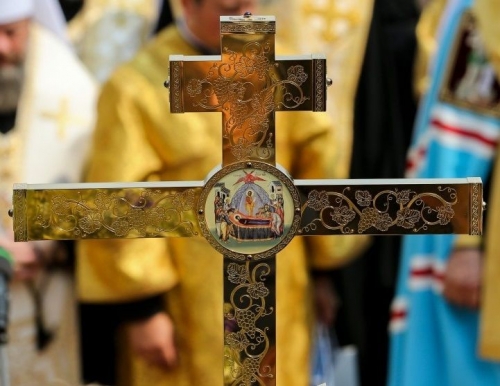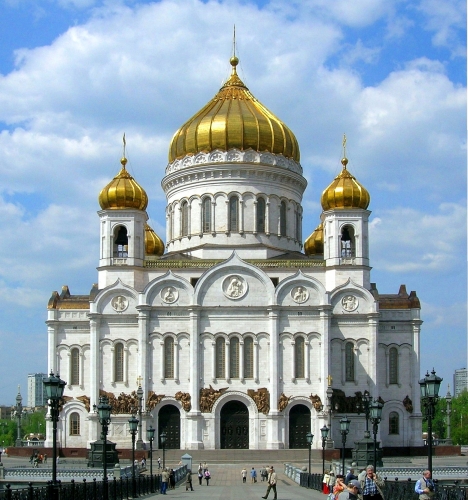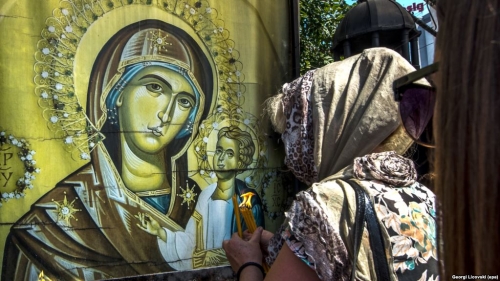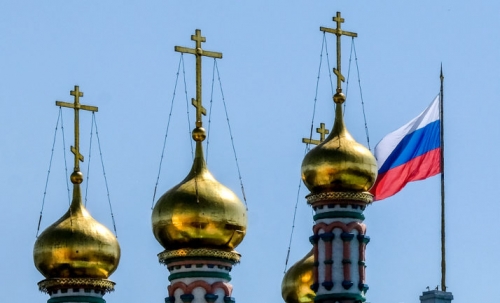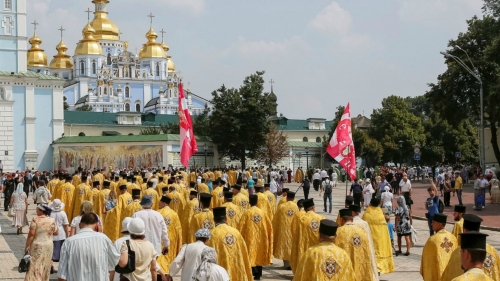In de late negentiende eeuw trokken talrijke Belgische investeerders, arbeiders en vaklieden naar het zuidoosten van Oekraïne, aangetrokken door het industriële eldorado. Een duik in een vergeten stuk gedeelde economische en sociale geschiedenis tussen de Lage Landen en de Europese oostrand.
In de jaren 1860 begon in het tsarenrijk, waar ook een groot stuk van het huidige Oekraïne toe behoorde, een nieuwe industrialiseringsgolf die gericht was op de expansie van de zware industrie en de grootschalige maakindustrie in de steden, en op de uitbreiding van het spoornetwerk. Om de eigen opkomende industrie een duw in de rug te geven voerde de Russische overheid vanaf 1868 een erg protectionistische politiek. Tegelijkertijd besteedde zij de industriële ontwikkeling en de mijnbouw die de brandstof ervoor moest leveren voor geen klein deel uit aan bedrijven en kapitaalinvesteerders uit Groot-Brittannië, België, Frankrijk en Duitsland − West-Europese industrielanden die ervaring hadden met zware industrialisering op basis van steenkool.
Nieuw economisch élan
België en zijn investeerders stonden in Sint-Petersburg op een goed blaadje. Het land was toen niet alleen één van de leidende mondiale industriemachten en een industriepionier op het Europese vasteland. Het voerde internationaal sinds 1839 ook een neutraliteitspolitiek, in tegenstelling tot Groot-Brittannië waar Rusland gedurende de tweede helft van de negentiende eeuw bij wijlen erg gespannen relaties mee had, zoals tijdens de Krimoorlog (1853-1856) en tijdens de ware ’Koude Oorlog avant-la-lettre’ in Centraal-Azië (1873-1885). Omgekeerd was België net als de rest van West- en Centraal-Europa jarenlang getroffen geweest door de economische depressie van 1873. De nieuwe afzetmarkten en de industriële aspiraties in het gigantische tsarenrijk vormden een gedroomde kans om de gehavende economie en gefrustreerde financiële plannen een nieuw élan te geven.
Aanvankelijk trokken investeerders en ondernemers uit België vooral naar de streek rond Sint-Petersburg en naar de Baltische provincies met hun havens, scheepswerven en hun stevige vraag naar allerlei onderdelen en machines. Maar vanaf de jaren 1880 verschoof het zwaartepunt van de Belgische aanwezigheid en activiteit naar de provincie Jekaterinoslav, in het zuidoosten van wat nu Oekraïne is. Eén van de eerste grote inplantingen in het gebied waar Belgische kapitaalinvesteerders en technici een sleutelrol in speelden, was de bouw van de Brjansk-staalfabriek in de buurt van de provinciehoofstad Jekaterinoslav in 1885-1887. Eén landstreek in het oosten van de provincie, een regio die Donbass ging heten, oefende weldra echter bijzondere aantrekkingskracht uit op de Belgen.
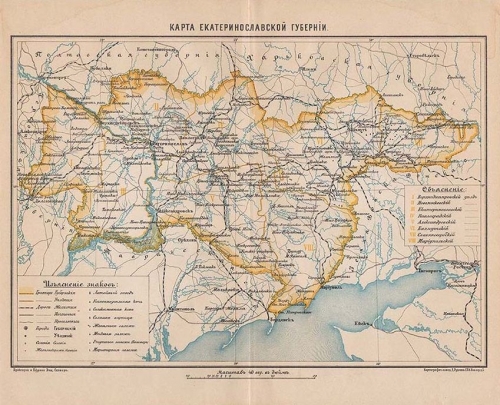
van het huidige Oekraïne omstreeks 1890. Donbass,
de drie districten
in het oosten van de provincie, kreeg in die tijd de
bijnaam ‘België’s tiende provincie’.
Zwarte goudkoorts
Van de 227 gekende Belgische bedrijven of bedrijven die in meerderheid in Belgische handen waren, die tussen 1880 en 1914 in het tsarenrijk waren gevestigd, waren er 133 in de Donbass-regio actief. De reden: steenkool, dé energiebron van de industrialisering vòòr de opkomst van petroleum. Onder meer door de snelle uitbreiding van het imperiale spoornetwerk − had het tsarenrijk in 1861 zo’n 1.600 kilometer ijzeren weg, dan was dat in 1900 ongeveer 53.200 − steeg de vraag naar steenkool als brandstof voor de staalovens en voor de treinen spectaculair. Bedroeg de steenkoolproductie in Donbass in 1870 circa 250.000 ton, dan was dat in 1900 elf miljoen ton, of twee-derden van de steenkoolproductie van het rijk.
Van de naar schatting 831 miljoen goudfrank aan Belgisch kapitaal in Rusland tegen het jaar 1900, zat 500 miljoen in Donbass. Dat maakte van België − of minstens van kapitaalgroepen en firma’s uit het land − veruit de grootste investeerder in die specifieke landstreek, nog vòòr Frankrijk met 275 miljoen, Groot-Brittannië met 34 miljoen en Duitsland met 29 miljoen goudfranken aan kapitaal. Omwille van de protectionistische economische politiek en de hoge importtarieven was het voor Belgische industriëlen veel voordeliger om ter plaatse vestigingen en fabrieken op te zetten dan vanuit België naar Rusland te importeren.
De Belgische aanwezigheid in Donbass werd bijzonder sterk in de steenkoolwinning, metallurgie en de machinebouw. In 1899 waren 17 grote steenkool- en ijzerertsmijnen en 38 metaalfabrieken in dit gebied eigendom van Belgische firma’s en geleid door Belgische directies. En in het jaar 1900 was de helft van het buitenlands kapitaal in de steenkoolindustrie en metallurgie en twee-derden van dat in de machinebouwsector in de regio Belgisch. Andere branches waar de Belgen in het zuidoosten van Oekraïne erg actief in waren, waren chemie − twee-derden van de soda en van het steenzout in het rijk werd hier geproduceerd − en de glasindustrie.
Russische obligaties
Grote Russisch-Belgische metallurgie- en mijnbouwconsortia zoals de in 1886 opgerichte Société Métallurgique dniéprovienne du Midi de la Russie en de in 1895 gevormde Société Métallurgique russo-belge beheerden in Donbass duizenden hectaren concessiegebieden en profiteerden van toelagen en gewaarborgde bestellingen van de Russische overheid. De waarde van hun aandelen op de beurs explodeerde. Zogenaamde emprunts russes, Russische obligaties, werden in België een gegeerde belegging, niet alleen bij de bemiddelde burgerij maar ook onder de middenklassen en kleinburgerij.
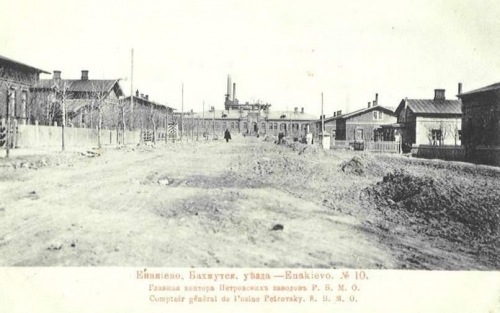
de in 1895 gebouwde Russisch-Belgische Petrovksi-metaalfabriek
in Jenakiëvo, in de buurt van het huidige Donetsk, omstreeks 1910.
Een groot deel van de Belgische kolonie in het huidige Oekraïne
leefde in het district Bachmoet waar onder meer
deze fabriek gesitueerd was.
De Belgische aanwezigheid manifesteerde zich niet alleen in de vorm van kapitaal en investeringen, maar ook letterlijk, fysiek. Tussen 1896 en 1900 trokken meer dan tienduizend Belgen naar het tsarenrijk. In 1910 zou hun aantal er volgens sommige historici meer dan het dubbele bedragen. De grootste groep leefde en werkte in de industrieregio Donbass. Als men Frankrijk en andere buurlanden van België niet meerekent, had die landstreek toen wereldwijd de grootste populatie geëxpatrieerde Belgen, na die in de VS en die in Argentinië dat in de jaren 1880 een populaire bestemming voor emigranten uit zuidelijk België was. Het aantal Belgen in het Oekraïense zuidoosten was ook véél groter dan dat in Kongo-Vrijstaat, het toenmalige privéwingewest van de Belgische koning Leopold II, waar eigenlijk maar weinig Belgen leefden.
Belgische cités in de steppe
Het verklaart waarom Donbass in die dagen wel eens de bijnaam ‘België’s tiende provincie’ – het land had er toen negen – kreeg. Onder de Belgen die naar de Europese oostrand trokken zaten echter niet alleen kaderleden, ingenieurs, bankiers en kommersanten, dus mensen uit de burgerij en de nieuwe adel. Zo’n driekwart waren geschoolde arbeiders, vaklieden, voormannen en klerken die de plaatselijke Russische en Oekraïense arbeiders en bedienden in dit oorspronkelijk dun bevolkte steppegebied moesten opleiden en superviseren, en installaties en infrastructuur moesten opzetten.
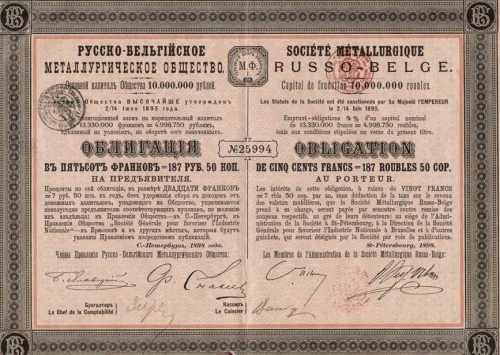
De grote meerderheid kwam uit zuidelijk België, meer bepaald uit de Luikse staalbekkens, uit de Borinage en andere Henegouwse steenkoolgebieden, en uit het Brabantse Eigenbrakel. Ook al trokken velen oostwaarts toen België in 1892 nog maar eens getroffen was door een economisch-financiële crisis, dit waren geen haveloze paupers of lompenproletariaat waar men in België absoluut van af wilde. Het waren mensen die op het thuisfront tot een elite onder de arbeiders behoorden. Hun aanwezigheid in het Oekraïense zuidoosten was niet bedoeld als definitieve migratie en kolonisering, maar als uitzending op tijdelijke contracten. Sommigen bleven minder dan een jaar, anderen meer dan vijftien. Er zaten ook talrijke gezinnen bij.
In sommige fabrieken in Donbass kon een geschoolde Belgische metaal- en glasarbeider of een vakman in 1898 tot het vijfvoudige verdienen van zijn Russische of Oekraïense confrater. Naast goede lonen kregen zij toegang tot bedrijfsklinieken, scholen voor de kinderen die waren meegekomen, en ontspanningsfaciliteiten. De Belgen in Donbass woonden in aparte, speciaal gebouwde wijken waar de sociale segregatie uit het moederland werd doorgezet: villa’s en luxepensions voor de kaderleden en ingenieurs, woonkazernes en cités voor de arbeiders, een tussenvorm voor de voormannen, technici en klerken. Hier en daar bestaan die gebouwen, die veelal waren opgetrokken in baksteen en in een architectuurstijl die was gekopieerd uit de Belgische industriegewesten, nog steeds.
De erg frappante Belgische en andere West-Europese aanwezigheid, zowel financieel als fysiek, in Donbass toont de gespletenheid van het late tsarenrijk waarin een groot deel van de regio’s en samenlevingen traditionalistisch en zelfvoorzienend waren, en andere regio’s en maatschappelijke geledingen volledig geïntegreerd waren in de wereldeconomie en de toenmalige hoog-kapitalistische mondialisering. De sociale spanningen die de industrialisering en verstedelijking hadden meegebracht vertaalden zich steeds meer in sociale onrust en in xenofobie, niet alleen onder de plaatselijke arbeidersbevolking maar ook onder de lokale autoriteiten.
De crisis van 1900-1901 en het inzakken van de staalprijzen en van de beurswaarde door overproductie zetten al een eerste domper op de euforie. Ongeveer een derde van de Belgische bedrijven in het Oekraïense zuidoosten hielden het voor bekeken of werden overgenomen door hun Franse, Belgische en andere concurrenten. In Russische economische kringen vond de idee dat men de controle over de economie van het moederland moest terugnemen en dat buitenlanders maar eens moesten wijken voor Russische kaders en investeerders, steeds meer gehoor. Aan de basis keerde stakingsoproer zich soms tegen de wijken en andere symbolen van de aanwezigheid van West-Europeanen, Belgen incluis. In oktober van het revolutiejaar 1905 werd bijvoorbeeld het Belgische consulaat in Jekaterinoslav vernield.
Uittocht uit Donbass
Er braken weer betere tijden aan met het economische herstel vanaf 1907 en de duidelijke verbetering van de lonen en arbeidsomstandigheden die de lokale arbeidersbeweging had kunnen bekomen, tot het uitbreken van de oorlog in Europa en de Duitse inval en bezetting van België in de zomer van 1914 écht het einde inluidde. België en Rusland stonden in de oorlog aan dezelfde kant. Het draaiende houden van de industrieën was van levensbelang. Duitse bedrijven en bedrijven waar Duits kapitaal in zat ̶̶ wat niet zelden het geval was met Belgische bedrijven door de erg complexe en schimmige kapitaalconstructies ̶̶ werden genationaliseerd. Russen, Fransen en Belgen vervingen de Duitse kaders en technici die in 1914 waren uitgewezen of gearresteerd. In de plaats van de arbeiders die gemobiliseerd waren in het leger van de tsaar kwamen inheemse arbeidsbataljons uit de Kaukasische en Centraal-Aziatische provincies en Oostenrijks-Hongaarse en Ottomaanse krijgsgevangenen.
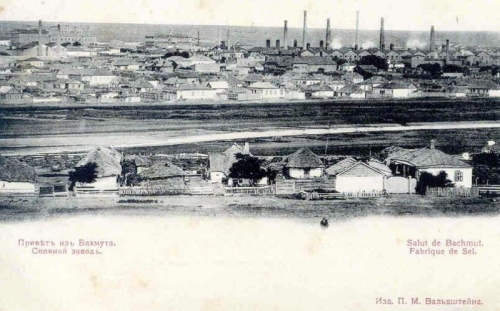
omstreeks 1910.
In 1885 werd ongeveer driekwart van het steenzout in het
tsarenrijk hier geproduceerd. Een deel van de zoutmijnen waren
in Belgische handen. De Russische en Oekraïense arbeiders, vaak
inwijkelingen uit andere regio’s van het tsarenrijk, leefden in het
soort nederzettingen dat men op de voorgrond ziet.
Het doek over de episode van België’s ‘tiende provincie’ viel voorgoed met de afzetting van de tsaar in februari 1917, de bolsjewistische coup in oktober en met de burgeroorlog die erop volgde. Oekraïne werd voor het eerst kort een onafhankelijke republiek. Donbass bleef tot in het najaar van 1921 een frontgebied en twistappel tussen de Oekraïense nationalisten, de sovjet-machthebbers en het rode leger, anarchistische groepen, de tsaristische witte legers en kozakken die allemaal stukken van de regio innamen en dan weer kwijtspeelden. Omdat de toestand te chaotisch en gevaarlijk was geworden, werden de Belgen die nog in het gebied zaten vanaf het voorjaar van 1918 geëvacueerd. De laatste ingenieurs, technici en diplomaten vertrokken in de herfst van 1919 per schip over de Zwarte Zee.
De Belgische bedrijven en infrastructuur werden genaast nadat de sovjets Donbass in handen kregen. In België zouden belangenverenigingen van gedupeerden nog vele jaren tevergeefs proberen om daar compensatie voor te krijgen van de Sovjet-Unie. Dra kwam nog een andere uittocht op gang, die van de zogeheten ‘witte Russen’. Die mensen, niet te verwarren met ‘Witrussen’, waren aanhangers van het oude tsaristische bewind en vele anderen die niet onder het nieuwe sovjet-bewind wilden leven en naar het buitenland vluchtten. Een aantal trokken naar België, en sommige families vestigden zich in Luik, dat zij kenden uit de hoogdagen van de Belgische aanwezigheid in Oekraïne. Ze richtten er een orthodoxe parochie op die nog altijd bestaat.
~ Bruno De Cordier
Hoofddocent aan de Universiteit Gent



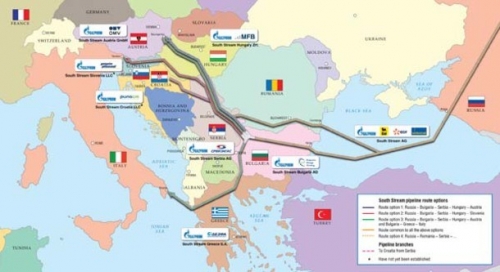

 del.icio.us
del.icio.us
 Digg
Digg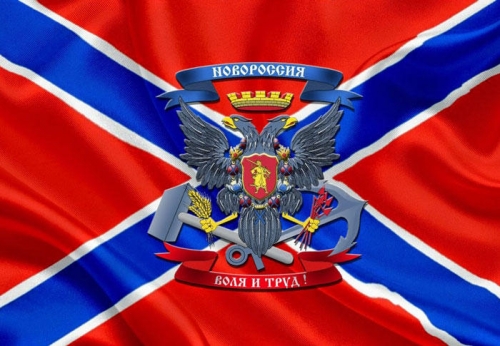
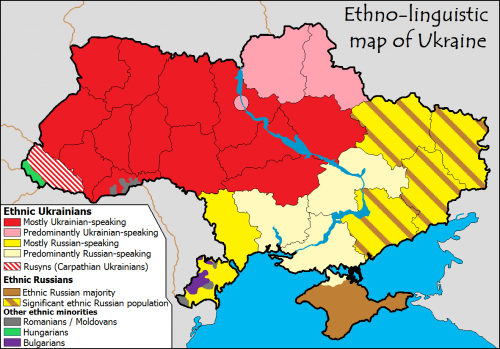
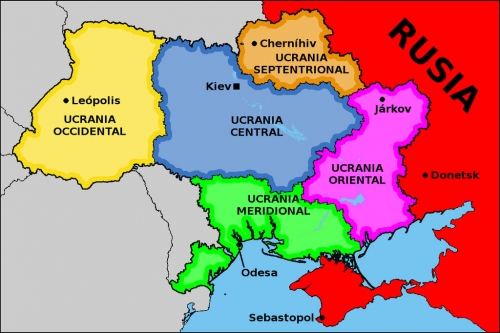
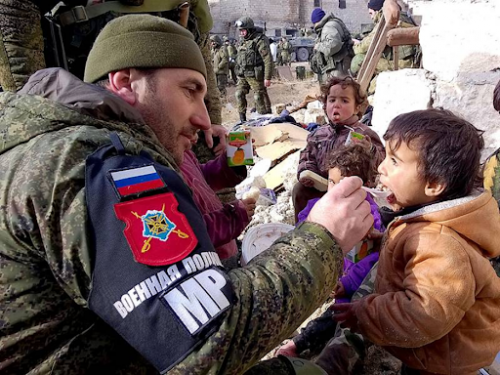
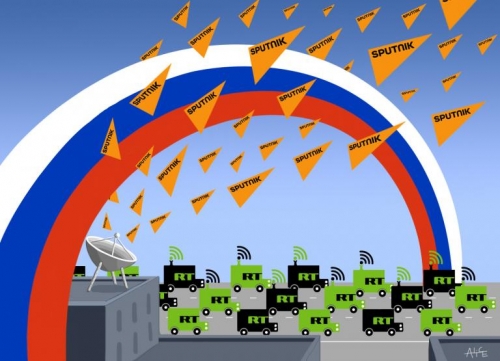
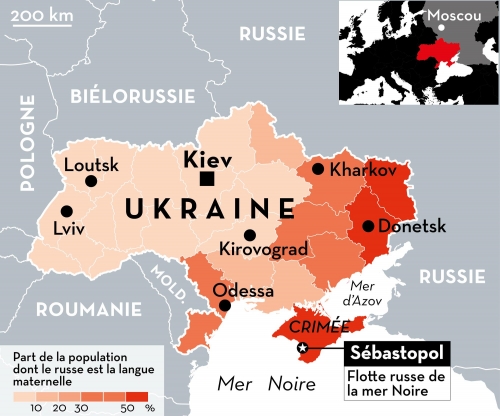
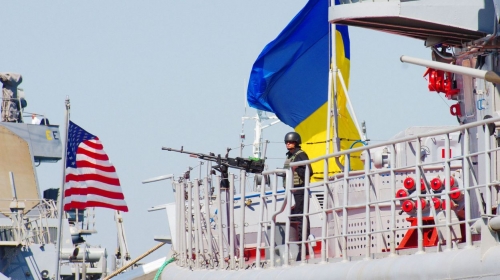
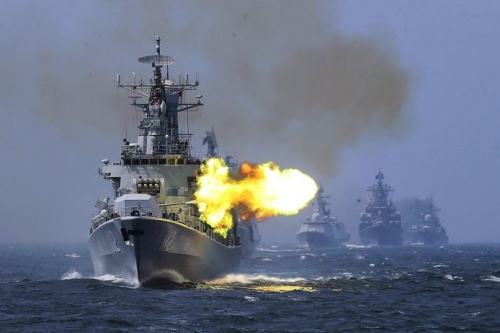
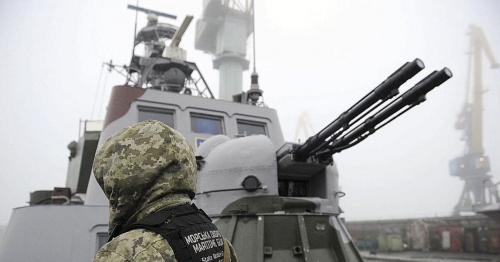
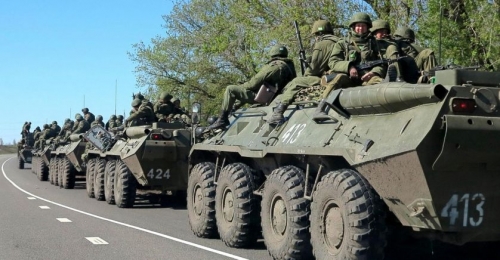
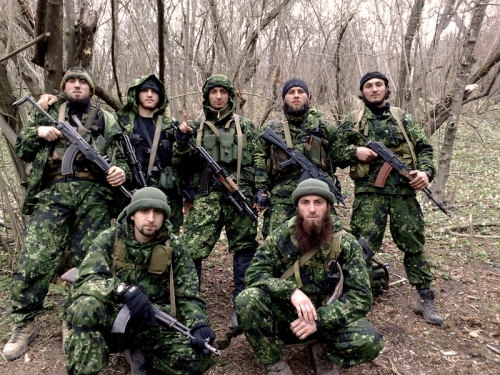
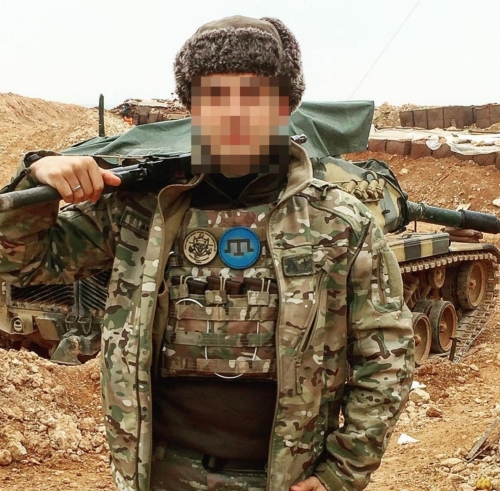
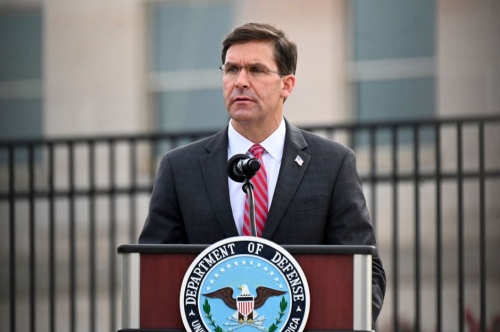
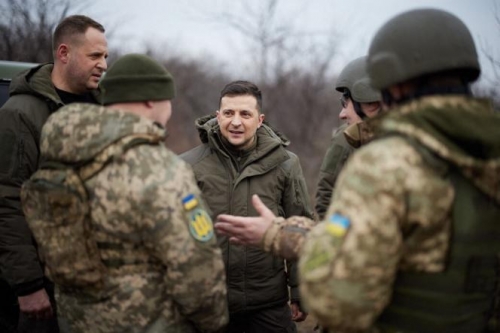
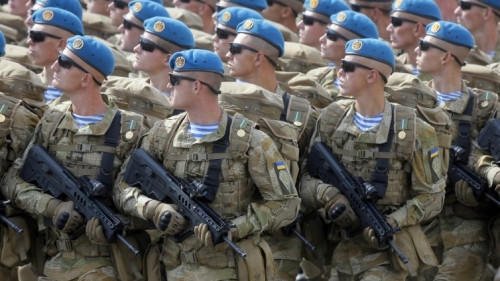
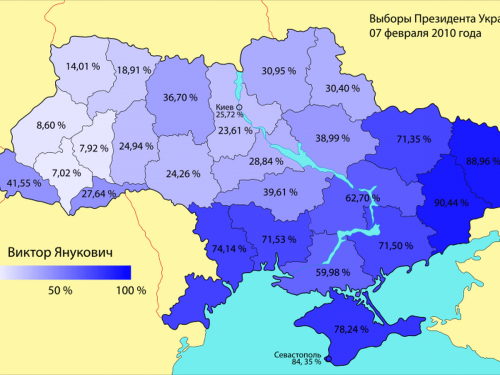
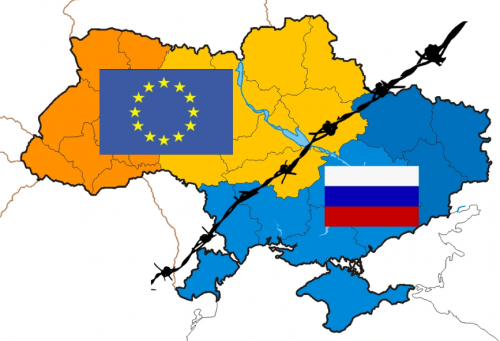
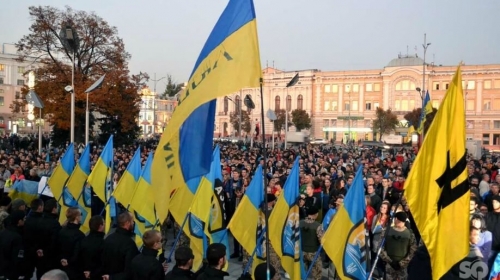
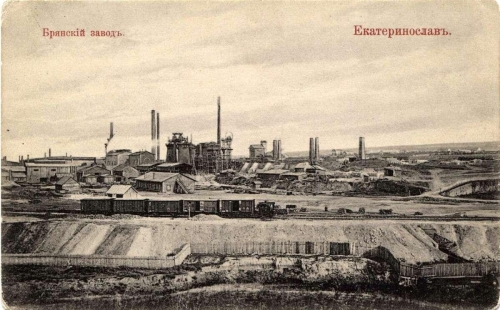
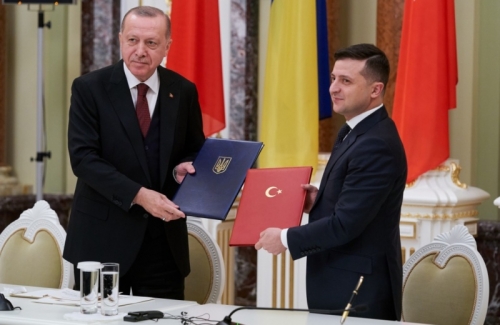

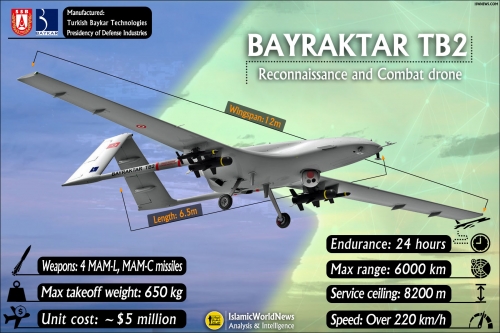
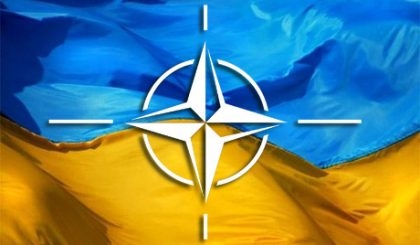
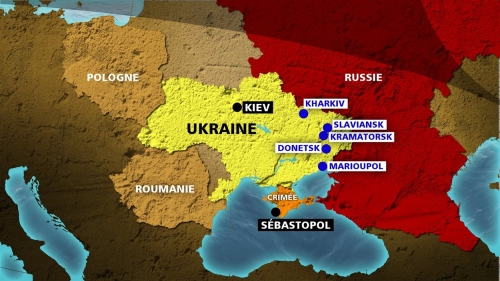
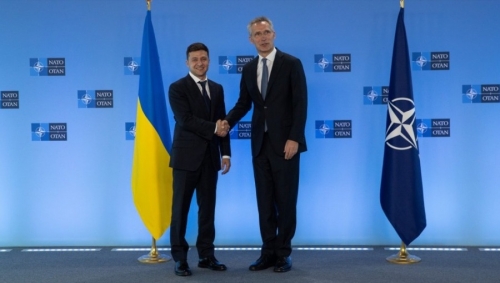
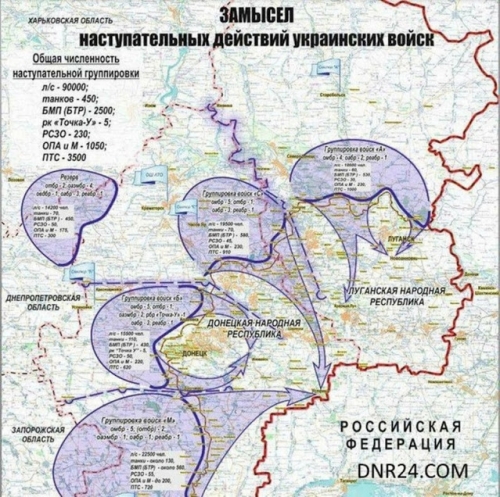
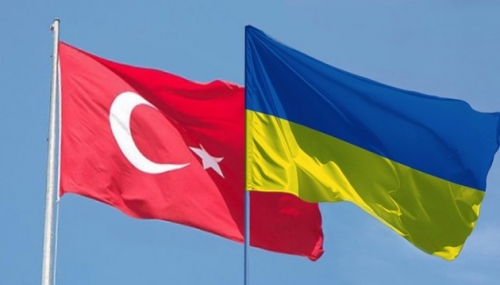
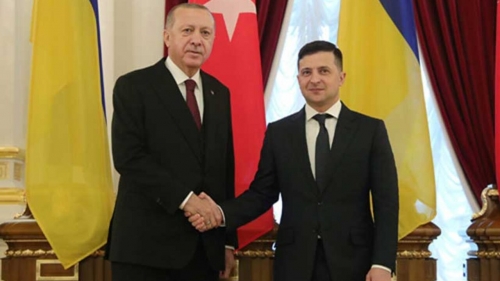
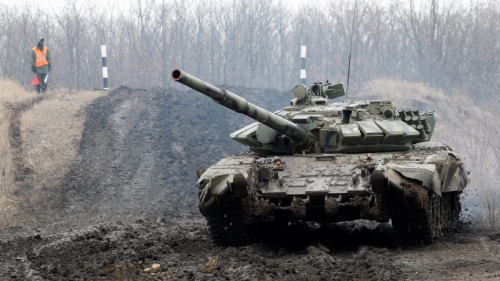
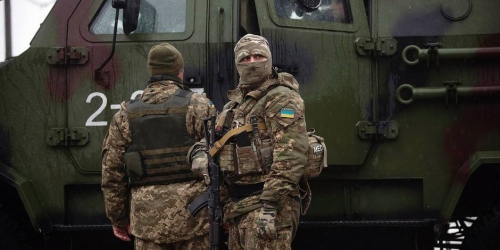
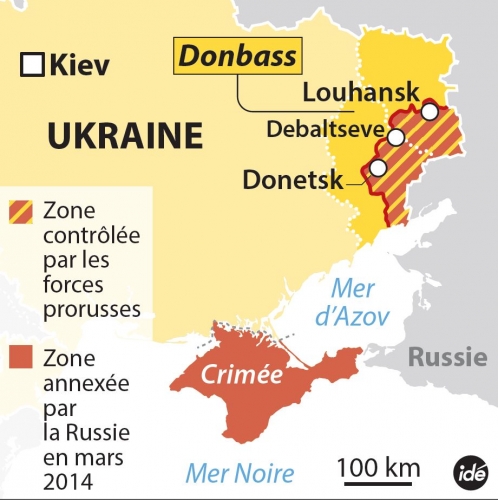
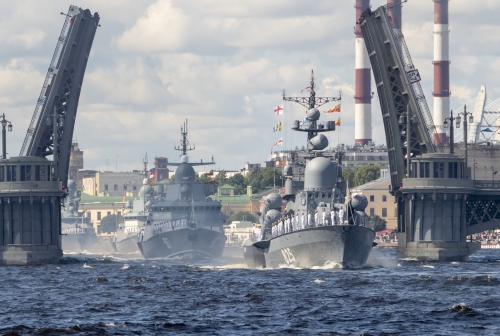
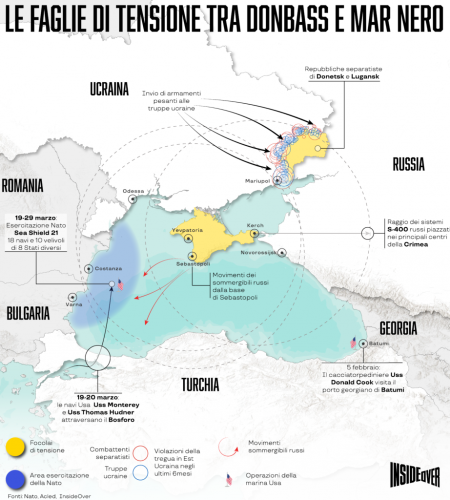
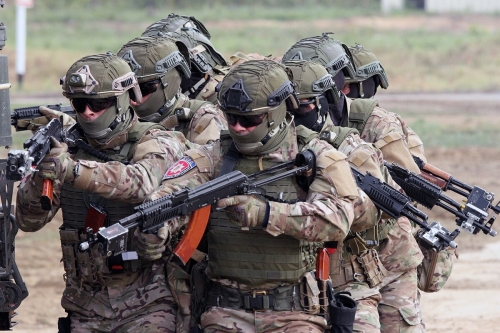
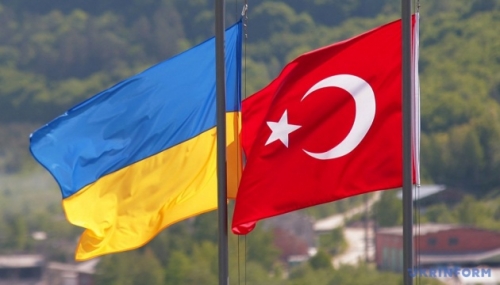
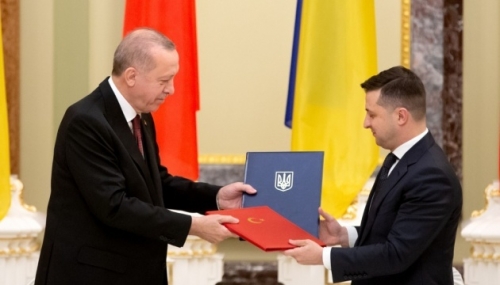
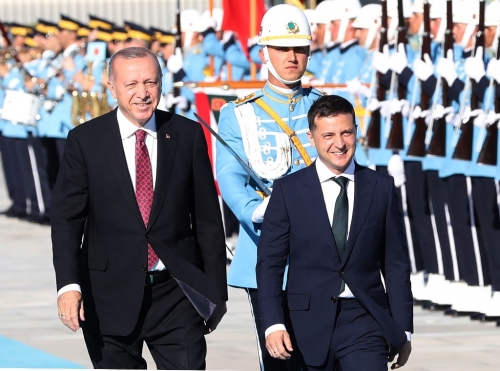
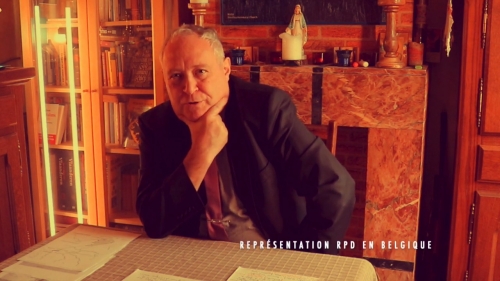
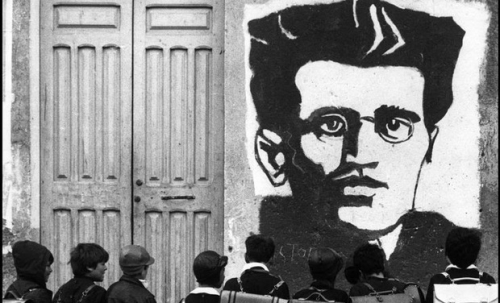
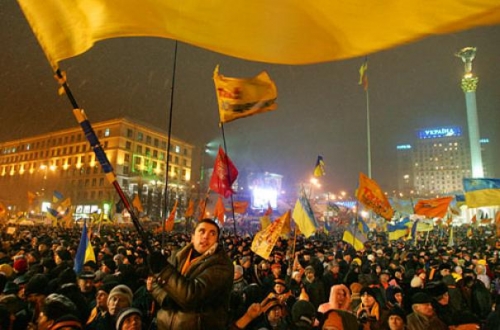
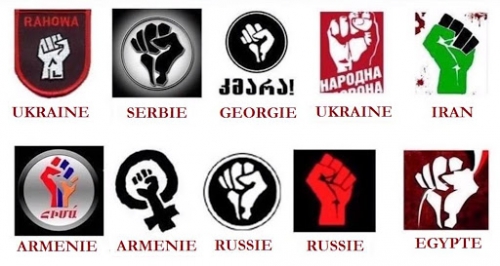
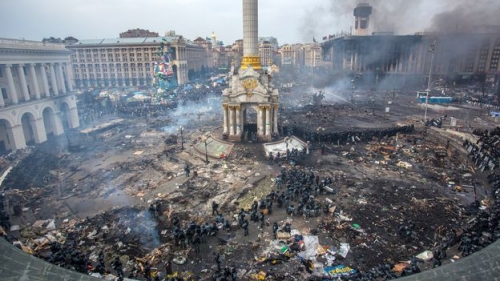
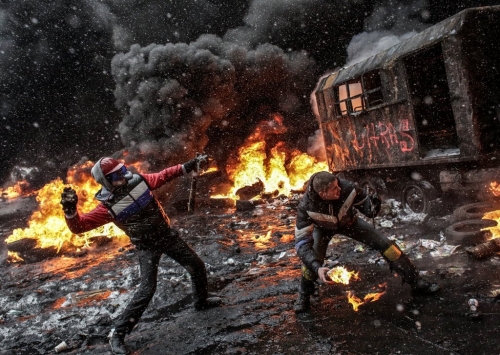
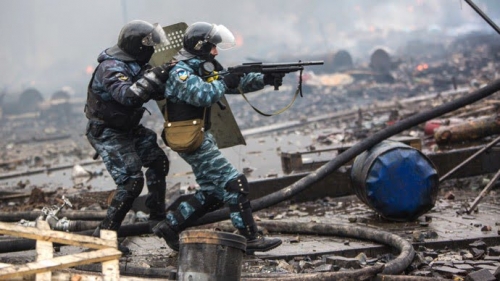
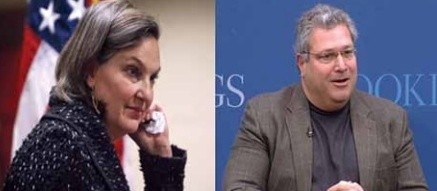
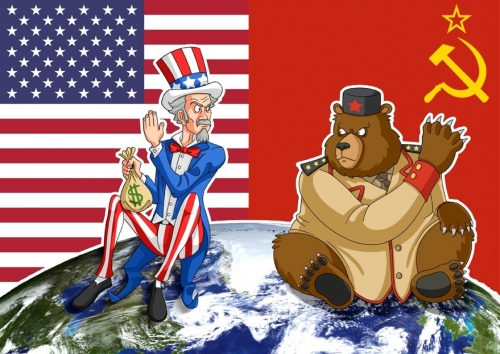
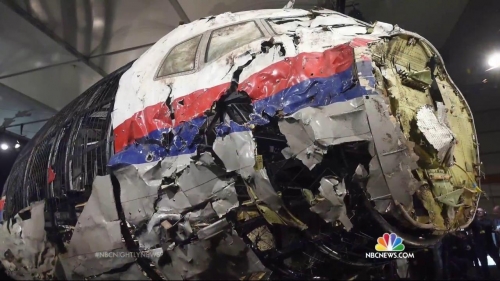
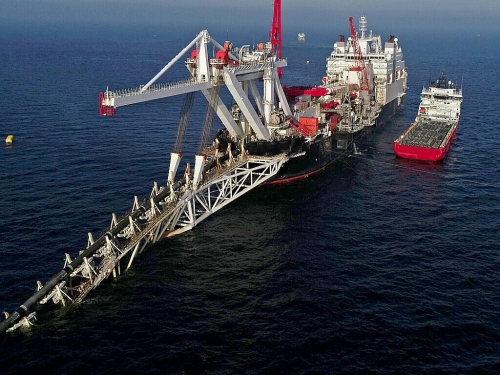
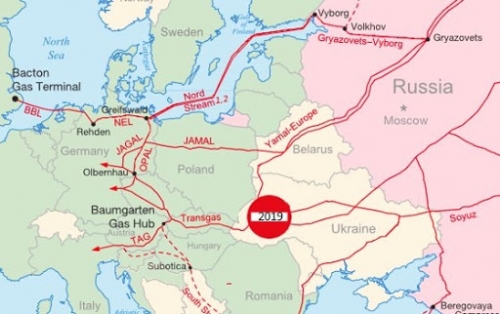


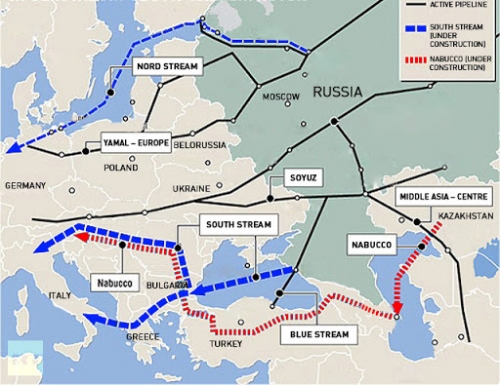
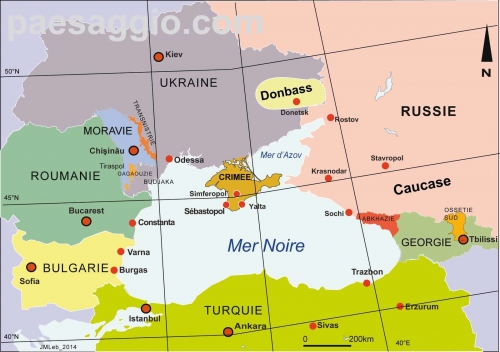
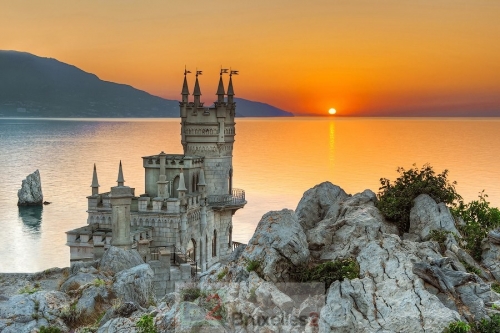
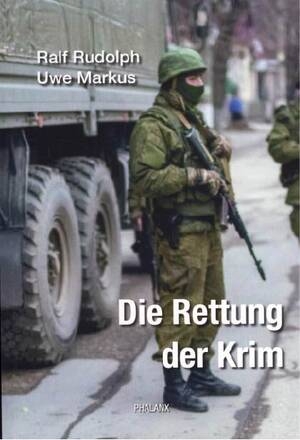 Les auteurs accompagnent le lecteur à travers l’histoire de la sécession de la Crimée. On apprend un tas de choses sur les contextes historique, politique et économique de cette région. Comme les auteurs ont également de bonnes connaissances en histoire militaire, le lecteur est introduit dans les contextes géopolitiques. La constante politique d’encerclement de la Russie par les Etats-Unis, fortement guidée par leurs propres intérêts économiques, est présentée avec de nombreux faits, comme dans le différend sur les gazoducs dans la région de la mer Noire. Le bouleversement politique en Macédoine de 2016 apparaît soudainement sous un jour totalement nouveau. Le facteur décisif n’était pas les conflits internes, mais la construction prévue d’un gazoduc par un consortium dirigé par l’entreprise russe Gazprom via les Balkans vers l’Autriche.
Les auteurs accompagnent le lecteur à travers l’histoire de la sécession de la Crimée. On apprend un tas de choses sur les contextes historique, politique et économique de cette région. Comme les auteurs ont également de bonnes connaissances en histoire militaire, le lecteur est introduit dans les contextes géopolitiques. La constante politique d’encerclement de la Russie par les Etats-Unis, fortement guidée par leurs propres intérêts économiques, est présentée avec de nombreux faits, comme dans le différend sur les gazoducs dans la région de la mer Noire. Le bouleversement politique en Macédoine de 2016 apparaît soudainement sous un jour totalement nouveau. Le facteur décisif n’était pas les conflits internes, mais la construction prévue d’un gazoduc par un consortium dirigé par l’entreprise russe Gazprom via les Balkans vers l’Autriche.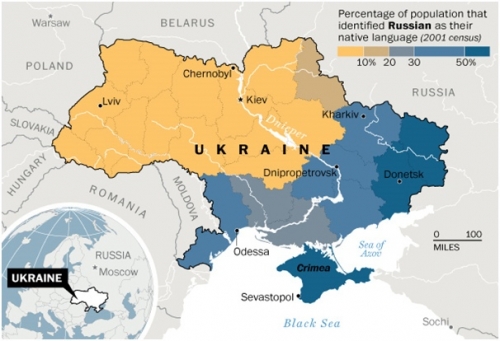
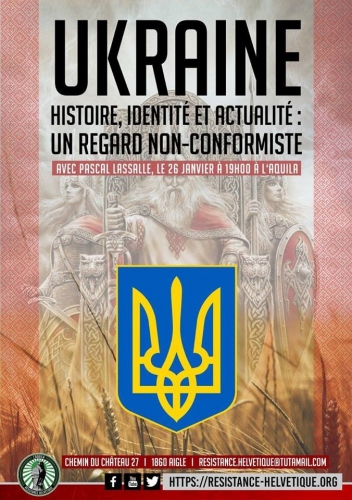
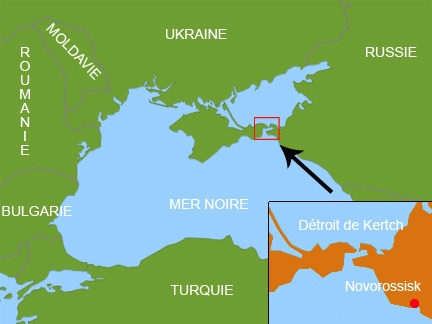
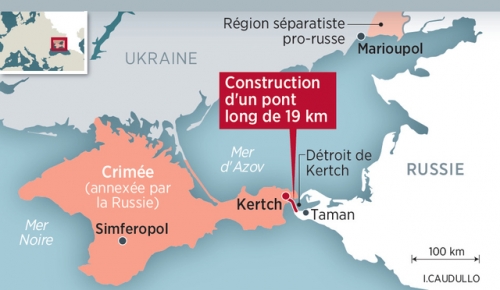
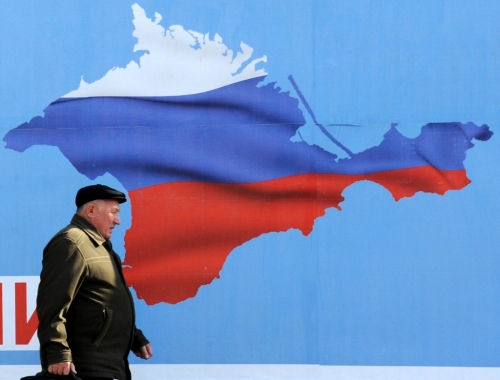
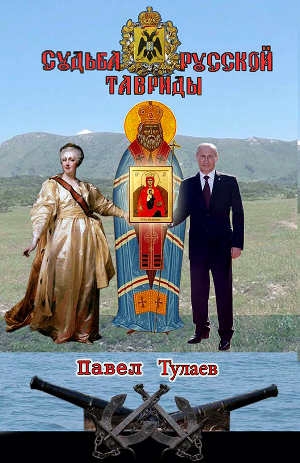 The Russian colonisation of Crimea, which began during the first campaigns against Constantinople, continued to develop during the Tmutarakan principality from the 10th to 12th centuries, on the territory of ancient Tamatarkha. Here, on the banks of the Cimmerian Bosphorus, one of the first Russian places of worship, a shrine to the Most Holy Virgin, was built. Nikon, the first of the chroniclers known to us, lived here; he was to become the abbot of the Kiev-Pechersk monastery. Here Boyan, the legendary teller of tales, sang epics to the accompaniment of his dulcimer. And on this place marched the forces of the prince of Novgorod-Severski, whose deed was celebrated in the inspired «Tale of Igor’s Campaign».
The Russian colonisation of Crimea, which began during the first campaigns against Constantinople, continued to develop during the Tmutarakan principality from the 10th to 12th centuries, on the territory of ancient Tamatarkha. Here, on the banks of the Cimmerian Bosphorus, one of the first Russian places of worship, a shrine to the Most Holy Virgin, was built. Nikon, the first of the chroniclers known to us, lived here; he was to become the abbot of the Kiev-Pechersk monastery. Here Boyan, the legendary teller of tales, sang epics to the accompaniment of his dulcimer. And on this place marched the forces of the prince of Novgorod-Severski, whose deed was celebrated in the inspired «Tale of Igor’s Campaign».